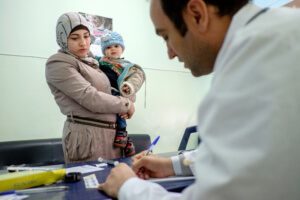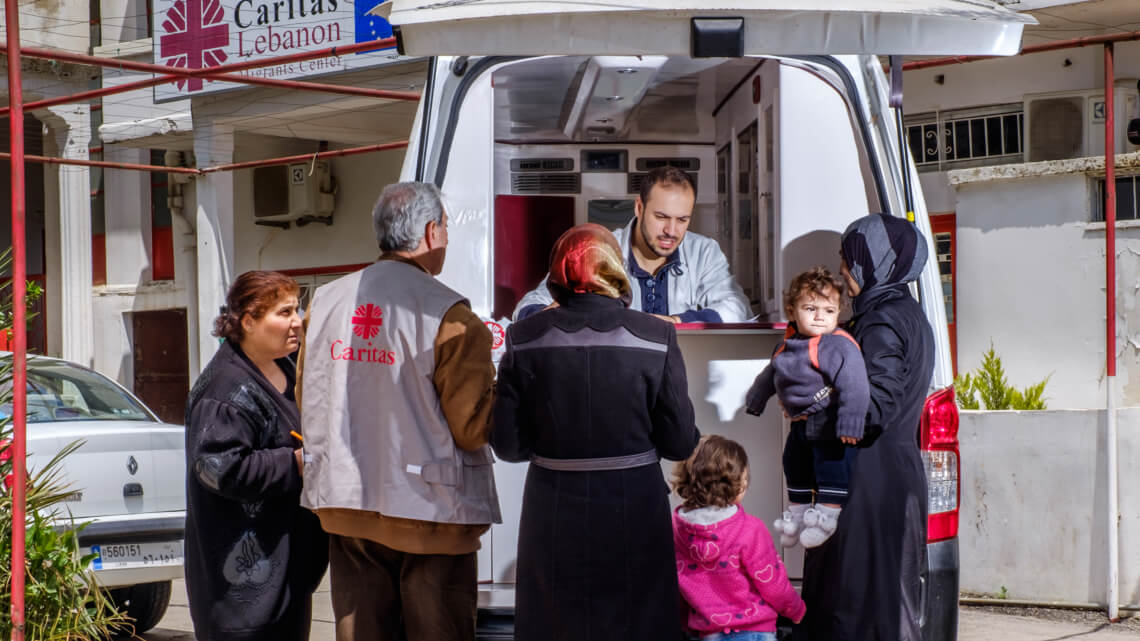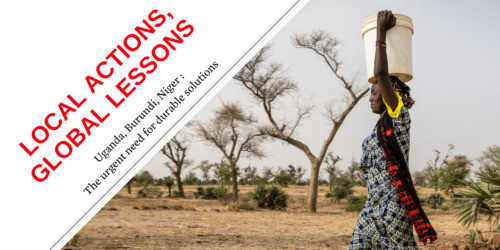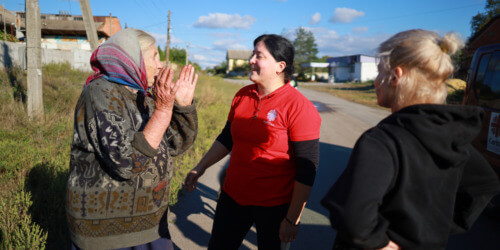“It’s really chaos in Lebanon at the moment,” explains Sébastien Dechamps who is responsible for our projects in the Middle East. “Caritas Lebanon is struggling to keep up with the requests for help…But it still continues to function- barely, but it continues.”
Shortages in health care services
During this crisis, Lebanese health care services are once again under pressure. Hospitals are in danger of going out of business because the funds are running out… They’re unable to pay staff and buy medicine[1].
For its part, Caritas is doing everything it can to maintain its primary care centers. People who are unable to get to the centers can count on Caritas mobile clinics.
>>ALSO READ: Mobile clinics meet urgent medical needs
As food, medicine and health care become less accessible, unemployment and inflation increase. These can have drastic psychological consequences on people; therefore Caritas also offers free consultations for people who have psychological difficulties.

More people in poverty
“In recent years, we have seen people, Lebanese, who previously were donors and volunteers for Caritas, fall into need,” Dayane Daou, the head of the health care department of Caritas Lebanon, reported last summer. Today, her observation resonates even more vividly in the light of this crisis.
In January 2019, a UN report stated that 28.5% of Lebanese are living below the poverty line. Since then, the situation has worsened and it is unlikely to improve…Case in point: the recent budget cuts by the Ministry of Social Affairs.
In addition, a shortage of dollars complicated the importation of essential products such as food. We see apocalyptic scenes where the shelves remain empty for several days, especially in the rural areas.
>>ALSO READ: Lebanon: an increase in vulnerabilities
Caritas Lebanon has already distributed more than 3,000 food parcels. Young people collected these parcels; some of them are associated with other local collection campaigns. “And they continue to collect food and basic necessities to distribute to those who need it most,” says Sébastien Dechamps.
You too can help. Make a donation today on the BE88 0000 0000 4141 account (by writing LIBAN in communication) or on our online platform. Thank you in Advance.
















